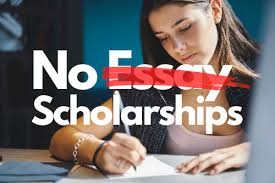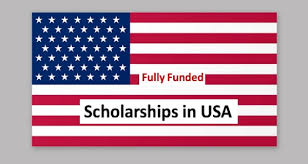Navigating the path to higher education can be challenging for students with disabilities, not only because of the physical or cognitive barriers they may face but also because of financial burdens. Scholarships for students with disabilities are a crucial tool in helping to alleviate some of these financial challenges, making higher education more accessible and inclusive.
In this guide, we will explore the various types of scholarships available for students with disabilities in 2024, offer tips on how to find these opportunities, and provide useful advice on how to increase your chances of winning. Whether you’re pursuing a degree in a traditional college or university, vocational training, or a specialized program, there is likely a scholarship out there that can help.
Types of Scholarships for Students with Disabilities
Understanding the different types of scholarships available for students with disabilities is important, as this will help you identify the ones you are eligible for. Scholarships can come in many forms, ranging from general disability scholarships to those focused on a specific condition, field of study, or demographic. Here’s a breakdown of the types of scholarships available:
1. General Disability Scholarships
These scholarships are available to students with any type of disability, whether it is physical, sensory, or cognitive. Some may require proof of a specific diagnosis or documentation from a medical professional to confirm the condition. Examples of general disability scholarships include:
- The Anne Ford and Allegra Ford Thomas Scholarships: These scholarships are for students with learning disabilities who are pursuing a higher education degree. The scholarship offers $10,000 to a deserving student, with an emphasis on academic achievement and overcoming challenges.
- The National Federation of the Blind (NFB) Scholarship Program: This is an annual scholarship program for legally blind students who are pursuing post-secondary education. The NFB offers over $12,000 in scholarships each year to students across the U.S.
2. Scholarships for Specific Disabilities
Some scholarships are targeted toward students with specific disabilities. These opportunities can be beneficial for those who face unique challenges due to conditions like ADHD, autism, cerebral palsy, visual impairment, hearing loss, or others. Examples of specific disability scholarships include:
- The Michael Yasick ADHD Scholarship: Sponsored by the pharmaceutical company Shire, this scholarship provides financial support to students who have been diagnosed with ADHD and are seeking higher education opportunities. The scholarship offers up to $2,000 for each academic year.
- The Autism Scholarship Fund: This is a scholarship for students with autism, and it is intended to assist with tuition, books, and other school-related expenses. The scholarship supports both undergraduate and graduate students, and it offers awards of varying amounts.
3. Scholarships for Disabled Veterans
Veterans who have sustained disabilities during their military service can benefit from specialized scholarship opportunities designed to support their educational goals. Many organizations and government programs offer scholarships to disabled veterans who want to pursue higher education. Examples include:
- The Pat Tillman Foundation Scholarship: This scholarship supports veterans who have served in the military and experienced disabilities during their service. The Tillman Scholarship offers financial assistance to help veterans pursue a higher education degree.
- The Veterans of Foreign Wars (VFW) “Sport Clips Help A Hero Scholarship”: This program offers scholarships to veterans who have been injured while serving and are seeking to earn a college degree. The scholarship helps cover tuition, fees, and other school-related costs.
4. Scholarships for Students with Disabilities in Specific Fields
Some scholarships are designed for students with disabilities who are pursuing a career in specific fields like engineering, law, technology, or healthcare. These scholarships can give students the opportunity to follow their passion while also helping cover the costs of their education. Examples include:
- The AHEAD Scholarship Program: Sponsored by the Association on Higher Education and Disability, this scholarship helps students with disabilities pursue careers in higher education administration, especially in student affairs. The scholarship offers financial assistance to those interested in making campuses more inclusive for students with disabilities.
- The HSF/Disney Scholarship: A collaboration between the Hispanic Scholarship Fund (HSF) and Disney, this scholarship is designed for students with disabilities pursuing a degree in media, technology, or entertainment.
How to Find Scholarships for Students with Disabilities
Finding scholarships specifically for students with disabilities may seem like a daunting task, but it is easier than you think. There are many resources and organizations that offer scholarship listings and information. Below are some tips on how to find these valuable opportunities:
1. Use Scholarship Search Engines
There are several scholarship search engines that allow you to filter by specific eligibility requirements, such as disability status. Some of the best scholarship search engines include:
- Fastweb: Fastweb is one of the largest scholarship search engines, offering thousands of opportunities for students with disabilities. You can narrow down your search by specifying your disability status and other factors.
- Scholarships.com: Another comprehensive search engine, Scholarships.com lets you filter by scholarships for students with disabilities and provides helpful details about each opportunity.
- Niche: Niche’s scholarship database allows students with disabilities to search for funding opportunities based on a wide range of criteria, including disability type and educational goals.
2. Check with Disability Advocacy Organizations
Many nonprofit organizations and advocacy groups offer scholarships to students with disabilities. These organizations often have a variety of funding options and can offer guidance on the application process. Some prominent organizations to check include:
- The American Association on Health and Disability (AAHD): AAHD offers several scholarships for students with disabilities pursuing degrees in health-related fields.
- The American Council of the Blind (ACB): The ACB offers scholarships for students who are blind or visually impaired and want to pursue higher education.
- The Disability Rights Education & Defense Fund (DREDF): This organization provides scholarships to students with disabilities pursuing degrees in law, public policy, or advocacy.
3. Reach Out to Your College’s Disability Services Office
Most colleges and universities have a disability services office that can provide students with valuable information about disability-related scholarships. These offices often have partnerships with external organizations that offer scholarships specifically for students with disabilities.
Many institutions also offer their own internal scholarships for students with disabilities, so it’s worth checking with the office to see if there are any available.
Tips for Winning Scholarships for Students with Disabilities
Winning a scholarship can be competitive, especially when the pool of applicants is large. However, there are several strategies you can use to improve your chances of winning. Below are some tips to help you succeed in your scholarship applications:
1. Provide Strong Documentation
Many scholarships for students with disabilities require documentation of your condition. Make sure to provide thorough medical records or a letter from a healthcare professional that details your disability. This can strengthen your application and make it easier for scholarship committees to assess your eligibility.
2. Emphasize Overcoming Challenges
Many scholarship programs want to see how you’ve overcome the challenges associated with your disability. Be sure to highlight any achievements, personal growth, or obstacles you’ve overcome. Show how you’ve demonstrated resilience, determination, and perseverance in the face of adversity.
3. Write a Compelling Essay
Many scholarships require you to write an essay as part of the application. This is your chance to tell your story and show the scholarship committee who you are as a person. Be honest, heartfelt, and personal in your essay. Discuss your goals, your passion for your chosen field, and how your disability has shaped your journey.
4. Apply to Multiple Scholarships
Don’t put all your eggs in one basket. Apply to as many scholarships as you can to increase your chances of winning. Even if you think you might not qualify for every opportunity, applying to multiple scholarships can open up new avenues for funding.
Conclusion
Scholarships for students with disabilities are an invaluable resource for students pursuing higher education, vocational training, or specialized programs. By understanding the types of scholarships available, using the right resources, and applying with strong documentation and a compelling essay, you can increase your chances of securing funding to help you achieve your educational goals.
Remember, every scholarship is an opportunity, and the right one could help you make your dreams a reality. Start researching today and take the first step toward a brighter, more accessible future.






